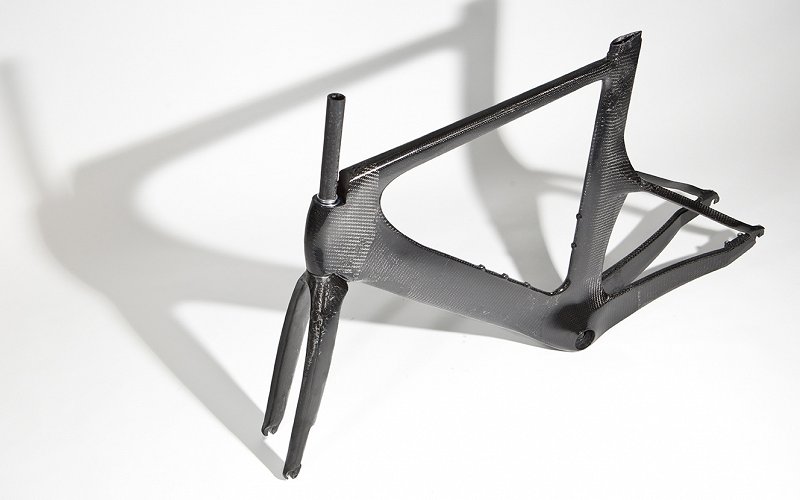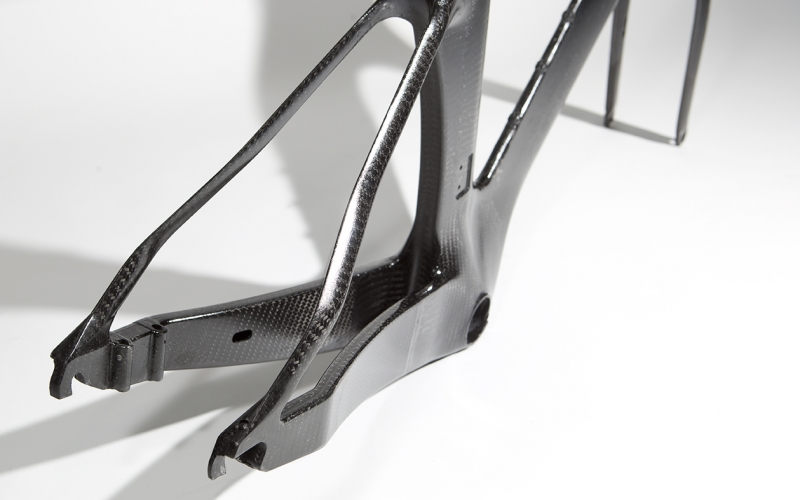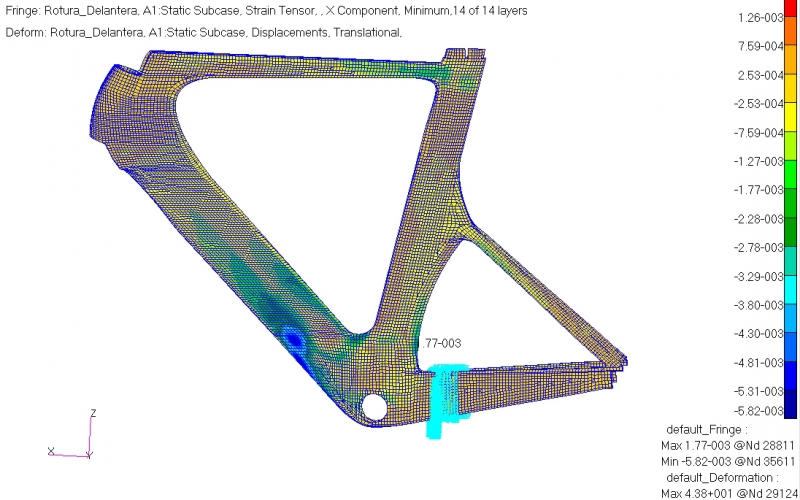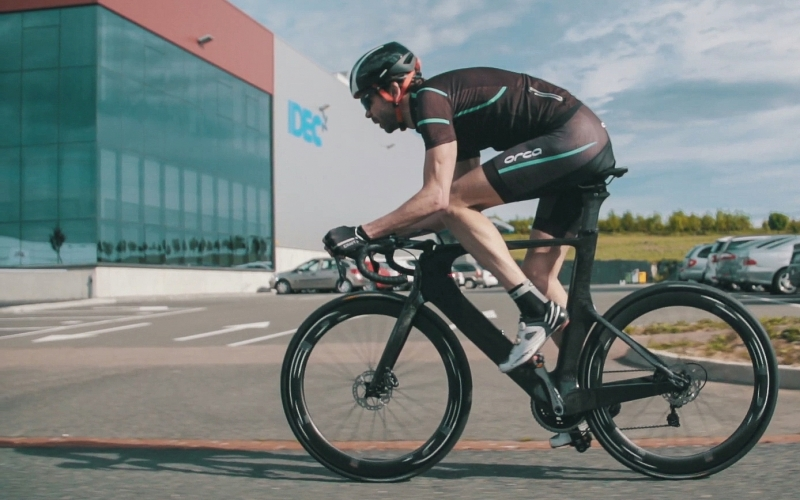OptiBike Robust Lightweight Composite Bicycle design and optimization




IDEC (End User) is in an SME focused in composites and new materials engineering. Its main strength is the development and industrialization of Advanced Composite Structures by Resin Transfer Moulding technology. NOESIS (HPC Expert) is an engineering partner from Belgium. UNITO (HPC Expert) is an Italian university from Turin, that provided HPC expertise together with NOESIS in order to achieve better performance. ARCTUR (HPC Provider), the Slovenian HPC centre, is the HPC Provider.
The Challenge
Composite structures, and especially those incorporating carbon fibres, are much more complex than isotropic metal alloys, as they require lengthy development, significant knowledge and fine tuning. Building prototypes to test various configurations may take years to reach an optimal structure, which is, of course, not affordable. Numerical simulations can significantly reduce the time and effort required, but modelling software tools and HPC infrastructures represent a large investment and solving optimization problems with hundreds of parameters require highly skilled engineers.
The Solution
The OptiBike experiment focuses on providing SMEs with a user-friendly service to optimize the configuration of the layers of a composite material part, returning, in a reasonable timeframe, the best performing orientation of the layers, that respects manufacturing constraints. In order to speed up the process, this service is deployed on a cloud-HPC infrastructure and it leverages machine learning algorithms to exploit and enhance the expert’s knowledge about performance and manufacturability of the configuration. The OptiBike service, once it has defined the best-performing configuration, is able to analyse the robustness of the optimal design with respect to the uncertainty related to manufacturing tolerances. The approach is validated on a use case that involves the simulation of stresses and deformations on a composite bike frame.
Business Impact
The OptiBike solution leads to a reduction of 80% in the time to design and optimise a bicycle that can currently take up to 8 months. In addition, it reduces the number of the manufactured prototypes by 75%. Having this optimization workflow available, means that IDEC is capable of staying ahead of the competition despite its limited resources. This is particularly relevant in volatile sectors such as competition bike manufacture. The reduced development time, will also allow IDEC to react more quickly to modifications of the design coming from either the customer or an in-house department.
On the other hand, Noesis will be able to provide this composite optimization service to customers looking for a general-purpose solution for their composite parts. Moreover, the methodology on which the service is based, enriches Noesis’ offer of engineering services and is meant to attract customers that are looking for a tailored solution for very high-end composite parts. Presence in the Fortissimo Marketplace will allow Noesis to reach out to a number of customers that are not yet in its sales network.
Arctur, in turn, foresees a continuation of efforts that have been established within the overall Fortissimo project, as it will continue to provide their HPC infrastructure and services through the Fortissimo Marketplace.
Benefits
- The end user has reduced the development time by 80% and number of physical prototypes by 75%
- €45,000 saved by the end-user per bike frame model.
- 9 new customers expected by the end user within 5 years after the end of the project.
Organizations Involved
End User: IDEC
HPC Expert: Noesis Solutions, University of Turin
HPC Provider: Arctur
